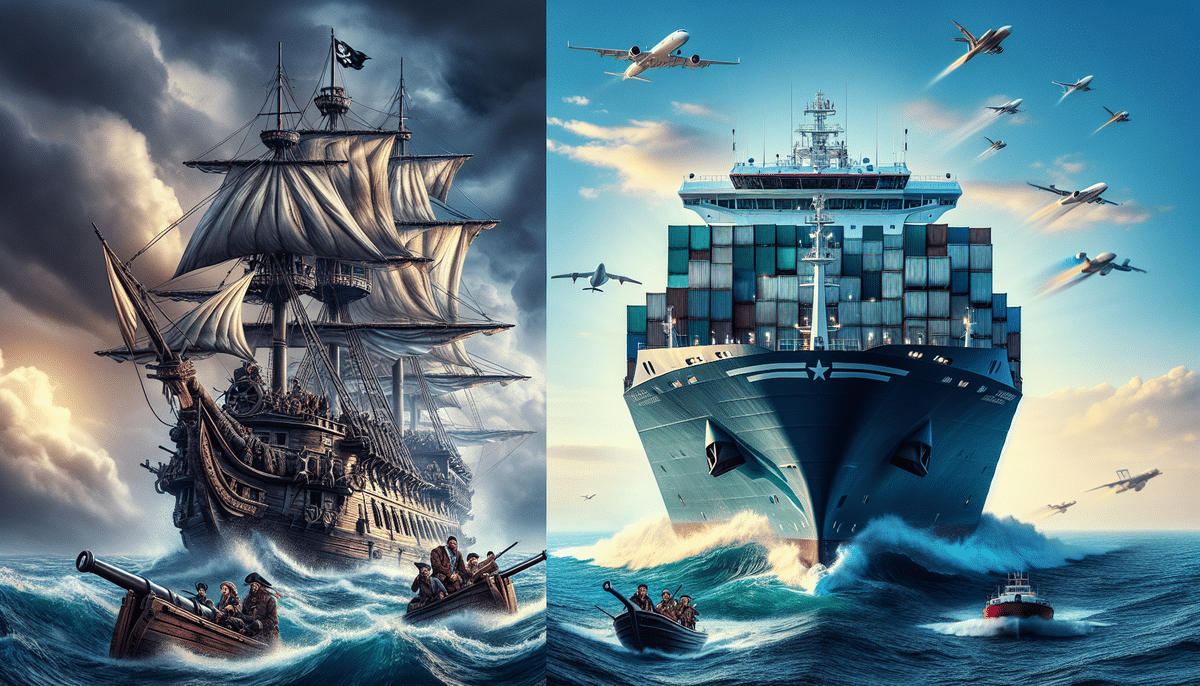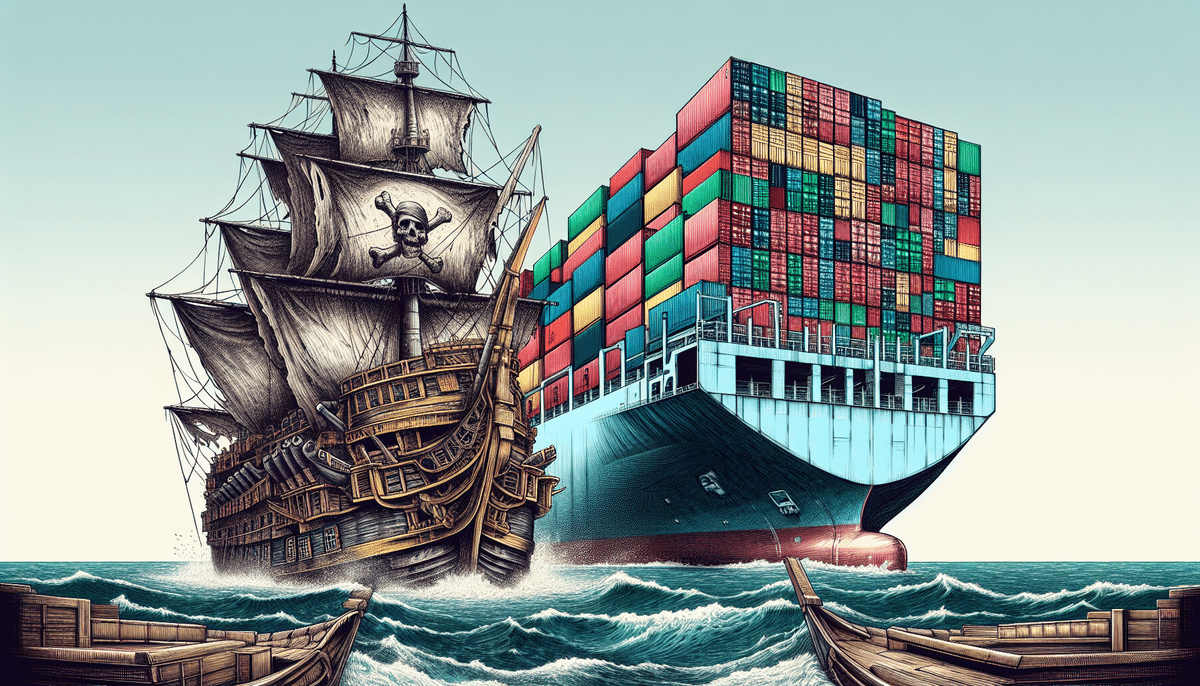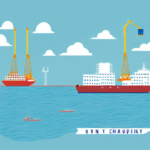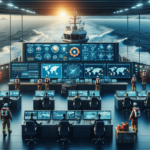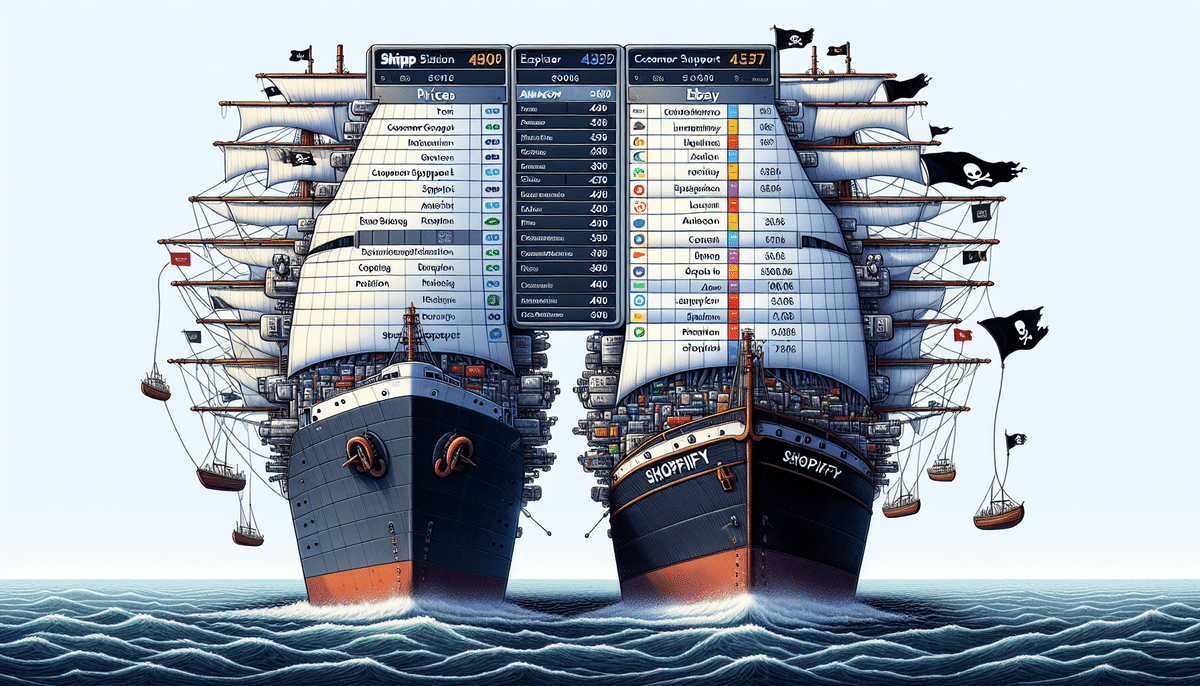Pirate Ships vs ShipWorks: A Comprehensive Comparison
When it comes to maritime operations, two vastly different options emerge: traditional pirate ships and modern ShipWorks services. Each comes with unique advantages and disadvantages. This article delves into the construction, safety features, environmental impact, and costs associated with both, while also examining the evolution of piracy in the age of technology.
Overview of Pirate Ships and ShipWorks
Historical Significance of Pirate Ships
Pirate ships have a storied history dating back to the 17th century. These vessels were primarily used by pirates to execute raids on merchant ships. Typically smaller and more maneuverable than merchant vessels, pirate ships could navigate shallow waters and execute swift attacks. Notably, pirate ships often operated under a democratic system, with captains elected by the crew, a stark contrast to the rigid hierarchies of naval ships at the time.
Despite their notorious reputation, some individuals today maintain and operate replica pirate ships for tourism and historical reenactments.
Introduction to ShipWorks Services
ShipWorks is a contemporary shipping and logistics company founded in 2000. It offers comprehensive services including air, sea, and land transportation, advanced tracking systems, and inventory management solutions. ShipWorks is dedicated to providing reliable and timely deliveries while emphasizing sustainability through eco-friendly practices.
Construction and Design Differences
Design of Traditional Pirate Ships
Pirate ships were engineered for speed and agility. Their lightweight construction allowed for quick maneuvers and evasive actions during naval engagements. Equipped with cannons and muskets, these ships were formidable opponents despite their smaller size.
Modern Design of ShipWorks Vessels
In contrast, ShipWorks vessels are built for maximum cargo capacity and operational efficiency. Modern materials and construction techniques ensure robustness and reliability. Advanced navigation and control systems are standard, enhancing safety and reducing the likelihood of accidents.
Safety Features: Then and Now
Safety on Pirate Ships
Pirate ships lacked many of the safety features found on today's vessels. The absence of advanced lifesaving equipment and navigation technology made voyages perilous, especially in rough seas.
Safety Protocols in ShipWorks
ShipWorks prioritizes safety with features such as fire suppression systems, lifeboats, and state-of-the-art radar and navigation tools. Additionally, the company employs highly trained crew members capable of handling emergency situations effectively.
Environmental Impact Comparison
Ecological Footprint of Pirate Ships
Historical pirate activities contributed to environmental degradation through illegal fishing and waste dumping. These actions disrupted marine ecosystems and endangered various marine species.
ShipWorks’ Commitment to Sustainability
ShipWorks is committed to minimizing its environmental footprint. The company utilizes hybrid and electric vehicles for land transportation, partners with fuel-efficient shipping lines, and promotes the use of recycled packaging materials. According to the International Maritime Organization, such practices significantly reduce carbon emissions and promote sustainable maritime operations.
Cost Analysis: Pirate Ships vs ShipWorks
Financial Implications of Owning a Pirate Ship
Maintaining a pirate ship involves substantial costs, including maintenance, repairs, and legal risks associated with piracy. The potential for severe financial penalties makes ownership a high-stakes endeavor.
Economical Benefits of Using ShipWorks
ShipWorks offers competitive pricing structures tailored to shipment size, weight, delivery timelines, and destinations. By leveraging economies of scale and advanced logistics software, ShipWorks provides cost-effective solutions that are generally more affordable than the expenses tied to owning a pirate ship.
Technological Advancements: Modern Piracy vs ShipWorks
Evolution of Piracy in the Digital Age
Modern piracy has transformed with technological advancements. Cyberattacks targeting shipping systems and ransomware schemes have become prevalent, posing new threats to maritime security.
ShipWorks’ Technological Edge
ShipWorks harnesses cutting-edge technology to enhance its services. Advanced tracking systems, inventory management software, and cybersecurity measures ensure efficient and secure operations. These technologies not only optimize logistics but also safeguard against potential cyber threats.
Role of Naval Forces and Security Measures
Combating Piracy: Naval Interventions
Naval forces worldwide play a crucial role in combating piracy. Operations coordinated with international maritime organizations aim to protect shipping lanes and deter pirate activities. According to the United Nations, collaborative efforts have led to a significant decline in piracy incidents in key regions.
ShipWorks’ Security Strategies
ShipWorks collaborates with naval forces and law enforcement agencies to ensure the safety of its vessels. The company employs armed guards on high-risk routes, implements advanced security technologies, and maintains real-time tracking to monitor and respond to potential threats promptly.
Conclusion: Making an Informed Choice
Choosing between traditional pirate ships and ShipWorks services involves weighing various factors such as cost, safety, environmental impact, and operational efficiency. While pirate ships hold historical and cultural significance, modern shipping services like ShipWorks offer reliable, secure, and sustainable solutions essential for today's global commerce.
Understanding the evolution of piracy and the advancements in maritime technology is crucial for making informed decisions in the shipping industry. For businesses seeking dependable and eco-friendly shipping options, ShipWorks stands out as a forward-thinking and responsible choice.















